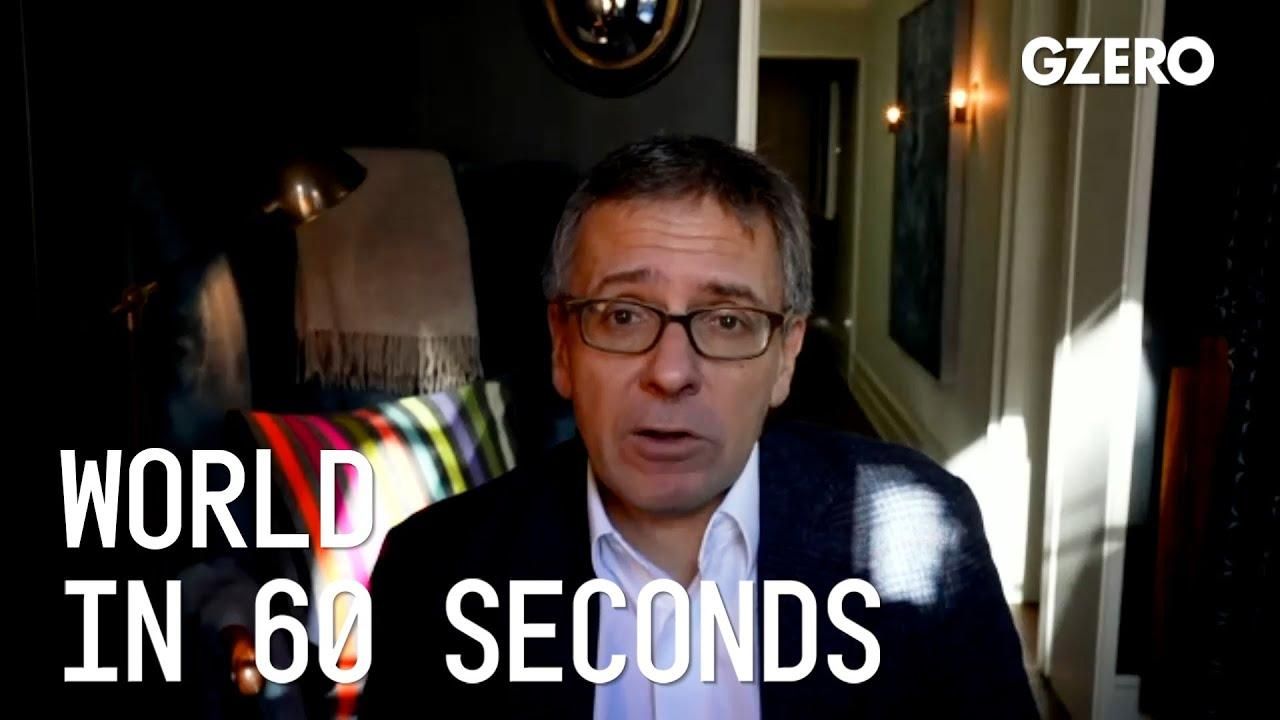
Ian Bremmer shares his insights on global politics this week on World In :60.
What does Biden hope to achieve from his Africa summit?
Dozens of African leaders in Washington DC, potentially the most stillborn summit the Americans have hosted since the Summit of the Americas, Latin America, in LA months ago, because the United States doesn't have much of a strategy. Certainly want to have more influence given how much the Chinese have been economically locking up so much of the political orientation of these countries. But that means money, and the Americans, this is at the end of the day not the top priority, not even close for the United States, given GDP and given role in the world. So I suspect it's going to be a lot of happy talk. There'll be some political alignment, but it's not going to be a lot of influence.
Why did Putin cancel his annual press conference?
Well, if you were Putin, wouldn't you cancel your annual press conference? I mean, look, they are generally friendlies, and he does control the media, and if you ask something really sharp, that can be it for you and your family. But he doesn't even want the hint of something that may not be scripted. He's been talking about and meeting with, for example, some of the families of the soldiers that are over there, some that have sacrificed, of course, an awful lot, but they've been very carefully vetted. He doesn't want to talk to anyone who's going to be in any way critical, and that's kind of what this annual press conference is like, usually hours long, very voluble. Putin who likes to opine on any topic that is not what you'd be seeing this year, and as a consequence, he's canceling it. It's clearly not a health reason, he's been doing a lot of other public meetings and traveling.
SBF is busted. That's right. At some point he's probably going to end up in jail. What does this mean for crypto exchanges around the world?
Well, it means less investor-friendly regulation for these exchanges. Remember, SBF was giving massive amounts of money to political figures in the United States to ensure that he could capture the regulatory process. That money gone up in smoke, probably have to give it back. And even if they don't, he's not going to have much influence with it from The Bahamas or from prison. And what that means is that a chilling effect on others in the industry. Lots of big questions from major financial institutions as to use-cases for crypto, as opposed to the blockchain, which people are very optimistic about the underlying technology. And again, it means regulations are going to be much more government-oriented, much more citizen protection-oriented, and much less crypto exchange-oriented.
- Russia and the West battle it out in Africa ›
- What We're Watching: EU-Qatar bribery probe, US-Africa talk shop ›
- What do Russians really think of the war? ›
- What We're Watching: Crypto chaos, China-El Salvador trade, inflation across the Atlantic, Biden-Xi meeting ›
- What We're Watching: Bankman-Fried in cuffs, China after "zero," Peru's next vote, Japan's proposed tax hike ›
- Where the US is gaining and losing influence - GZERO Media ›